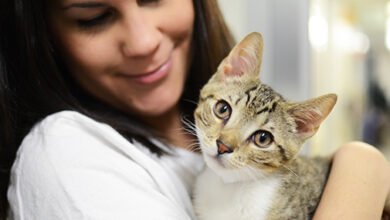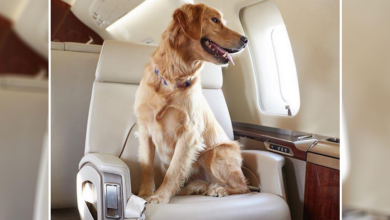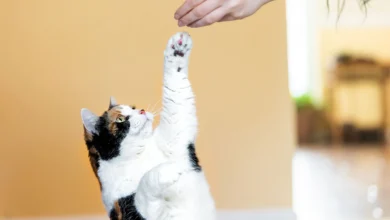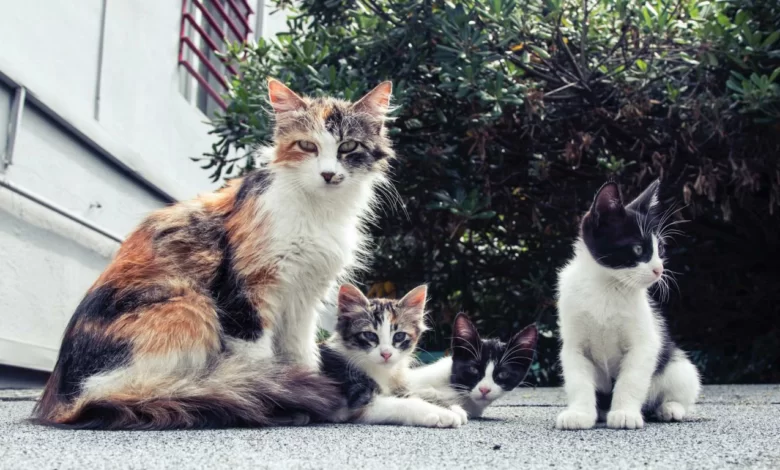
7 Things You Should Know Before Going to Buy a Kitten
1. They are not unlike fast growing babies. They start off lying in your arms looking at peace with the world but before you know it they’re at the “toddler” stage and running up drapes and under rugs!

2. They are fussy eaters. Even the smallest kitten will spit out everything it doesn’t believe to be the very best available – oh and “the best” is very subjective, it depends less on the price/brand and more on the cat’s likes and dislikes!
3. Which brings us onto number 3, your kitten will grow into an opinionated cat with strong likes and dislikes. It won’t care if that’s your chair, your child’s bed, an antique sofa or fragile houseplant. If your cat likes it, it’s his!

4. If you have friends and family who don’t like – or even better, are allergic to – your kitten from a very young age will see these as their new best friend and insist on sitting on their lap!
5. Don’t believe what your cat tries to make you think – it is possible to train a cat to do certain things. Just take potty training as an example,
you can train a cat to use a litter box, so it follows a cat is capable of learning. Unfortunately an ability to learn does not automatically mean a willingness to learn, especially in a cat!
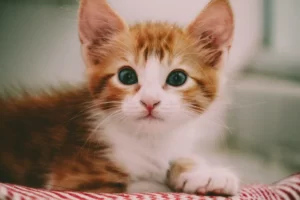
6. A kitten will grow, and grow fast. Remember this as you think it’s cute to have that tiny ball of fluff curled up next to you on your pillow at night!
Pretty soon that little kitten is going to take up all the pillow, and not be happy when it suddenly finds itself on the cold floor in a property fight over whose pillow it is!
7. A kitten will quickly worm itself into your heart and stay there – so make sure you only take enough money to buy one or you could end up bringing two or three home because you couldn’t choose between two of them, and then the third one looked so lonely!
Why should you Consider Buying Two Kittens Together?
You aren’t likely to get two for the price of one, and when it comes to kittens it’s not cheaper to buy them in bulk when it comes to food and kitty litter either, but there are some compensations that make it worth thinking about.
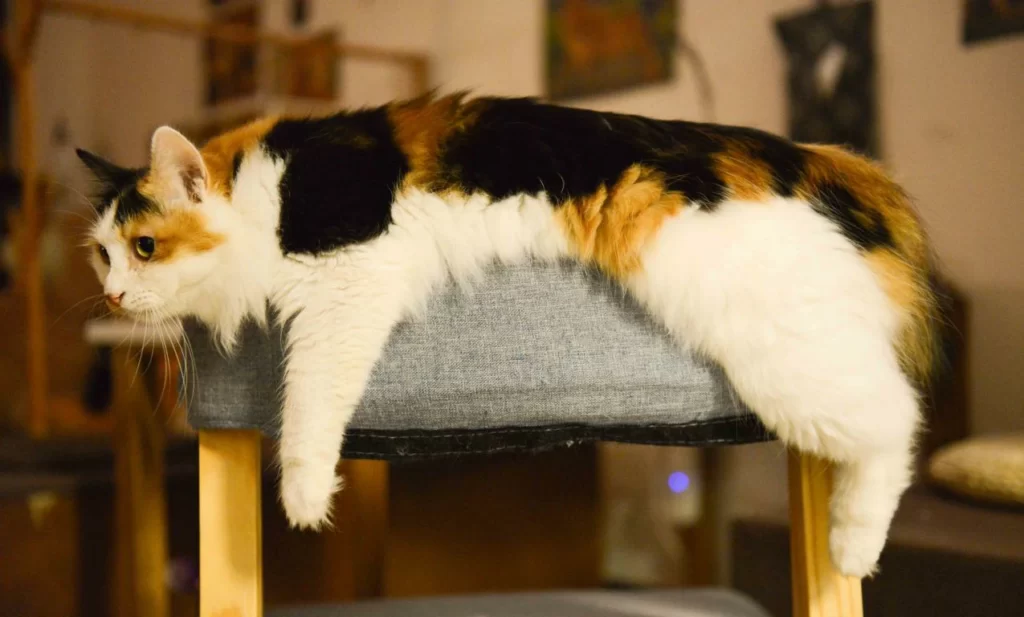
Aside from saving you the initial indecision of whether you want the smart talking black and white kitty, or the cute fluffy ginger tabby, buying two kittens together can actually make sense.
Taking a kitten away from its mother can be traumatic for the kitty. Suddenly, everything is strange. There’s a stranger person fussing it and it’s not fun anymore because it can’t see its momma.
The siblings aren’t there and they are sitting alone in a box, in a place they don’t recognize, and they’re terrified! Buying two kittens from the same owner should mean that you are buying siblings, or at least two kittens that have been in contact with each other during their first wobbly weeks.
Aside from creating this security blanket of familiarity, the next best reason for buying two kittens is that you’re less likely to turn your home into a cat war zone! Instead of waging war against your sofa, rugs and drapes to relieve the boredom, the kittens will chase each other.
Ok, so they may chase each other up the drapes, but that’ll soon wear off (about the time they get too heavy to hang there without gravity pulling them downwards)
and it’ll be fleeting as they run around the room rather than literally hanging there looking for the best vantage point to view the birds outside!
The kittens will play fight and then they’ll snuggle up together. They’ll both vie for your attention, and yet maintain a united front as they stalk about your home and yard daring other intruders to enter. They’ll share a dish of milk and food, but fight over the same toy.
Two kittens may require more money to keep than one, but they provide twice as much love and amusement, and great company for each other which is the best advantage of all if you’re out at work most of the day.
The True Cost Of Keeping A Pet
If your household is one of the many, many homes in the United States that acquired a pet this Christmas you received a gift that you and your family will enjoy for years.

In fact, it probably already feels like the pet is a part of the family. However, like any other member of the family that new dog or cat will need to be taken care of. In this article we will help you budget for the new member of your family.
If you welcomed a puppy and kitten into your household this Christmas they will already have grown noticeably.
In fact, they have probably doubled in size already and you may also notice that they have pretty ferocious appetites for their small size.
The costs of feeding your pet and giving it the care it deserves can add up pretty quickly so the sooner you start factoring these costs into your monthly budget the better.
If the new addition to your family is a small animal such as a rabbit or a hamster, then it certainly won’t break the bank. However, dogs, and even cats, can be notoriously expensive.
Dogs are hugely popular at Christmas and now that you are into the New Year the true cost of keeping one is probably becoming apparent.
It is probably still a puppy now, but towards the end of this year it will be fully grown and will be much harder to control.
For this reason you should start saving towards the cost of dog training. This can be quite expensive but it is well worth it for the peace of mind it gives, especially if it is a large dog. You can rest assured that it will do what its told, and it will be much less likely to run away or cause damage or injury.
Prices for dog training vary, but as a rough guide four weeks of training will cost in the region of $2,000. This would usually consist of two hours training a day, five days a week for four weeks.
This should be enough to have an average dog very well trained. If you feel this is above your budget you should at the very least buy a good dog-training book. A good dog-training book shouldn’t cost you much more than $20 or $30.
Training is a once-off cost. More important is preparing for the monthly costs of keeping an animal. It is estimated that an average dog will cost somewhere in the region of $12,000 dollars to keep over a 12-year life to feed.
This does not take into account vet bills, medicine, toys, and other equipment such as kennels. In reality, you should be setting aside about $2,000 every year to keep a dog healthy and happy.
Cats will be a little cheaper, but not significantly, at about $1,400 per year.
These estimates cover basic costs. However, owning a pet can get just about as expensive as you want to make it. If you want to dress your dog up in designer outfits then prepare to pay the price.
Also, if you travel you may need to pay for a pet passport, micro-chipping, quarantine and other costs.
Another thing you may want to consider is pet insurance. This needn’t be expensive and will cover costs if your pet becomes ill or is stolen.
If you have had a pet for a while you will be well aware that those vet bills soon add up so it could save you money in the long run.
Pet insurance policies can vary significantly both in terms of cost and quality, but for the most part you get what you pay for.
Be sure to read the small print so you know exactly what you are or are not getting. A basic policy that covers illness should be quite cheap, but you may be offered all manner of optional extras.
Some policies will cover the costs of advertising and a reward if a pet is lost or stolen. Others, will even cover the cost of counseling for family members if the pet dies or is lost.
So, if you got a dog for Christmas you should be at least setting aside about $200 dollars a month if you really want to look after it well.
This is a significant extra cost on top of your normal monthly budget. However, when you think of the fun and happiness the new member of the family will bring to your home it is money well spent.
what to know before buying a kitten,buying a kitten checklistbuying a kitten near me,things to know before getting a kitten reddit,kittens,preparing for kittens to be born,what i wish i knew before getting a kitten,adopt a cat,


